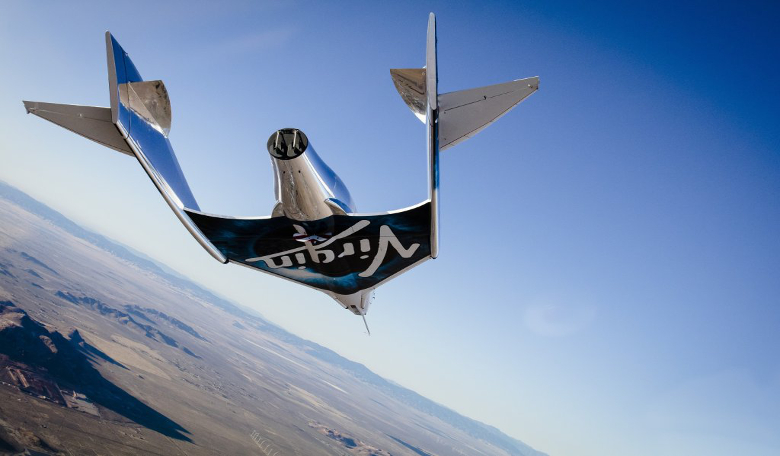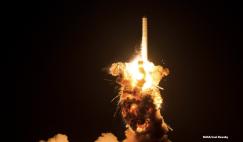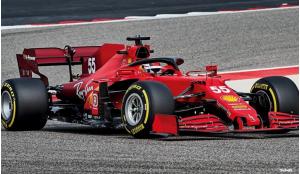Virgin Galactic hope to put their past behind them as their new spacecraft, the VSS Unity, makes a successful first glide flight over the Mojave.
The test flight, which was piloted by Mark Stucky and Dave Mackay, marks the first time that a vehicle built by the company’s sister organisation, aptly named The Spaceship Company, flew fully under its own control.
Mike Moses, SVP of operations for Virgin Galactic said, “The flight test is the tip of the iceberg, under the surface are hundreds and thousands of hours of design, analysis and tests to get us to this point. We’ve had the benefit of building on the previous program – we don’t have to start from scratch, but we also just can’t jump straight to the end.”
That previous program was the first version of SpaceShipTwo, which two years ago suffered a catastrophic in-flight breakup due to a premature brake deployment, causing it to crash in the Mojave desert, California. While the pilot, Peter Siebold, survived with serious injuries, the the co-pilot, Michael Alsbury was unfortunately killed.
Since then, Virgin Galactic have kept moving forwards with their planes to take tourists to the edge of space with a series of captive carry test flights. This entails VSS Unity hitching a ride to the dizzying heights required for the test flights underneath WhiteKnightTwo – the companies custom-built, four-engine, dual-fuselage jet aircraft.
Captive carry has the advantage of acting like a flying wind tunnel, allowing engineers to collect valuable data to assess how VSS Unity would perform in a wide variety of real-world flight conditions.
These preliminary test flights have clearly done their job, as VSS Unity took to the skies for 1hr 20 minutes in its first gliding test flight and achieved a maximum speed of approximately Mach 0.6. Although the company has said that they have not yet reached the rocket powered phase of the test flight program, VSS Unity comfortably glided home from an altitude of 50,000 feet.
Further test flights will continue, said Virgin Galactic, as soon as the engineers say we are ready to do so.











